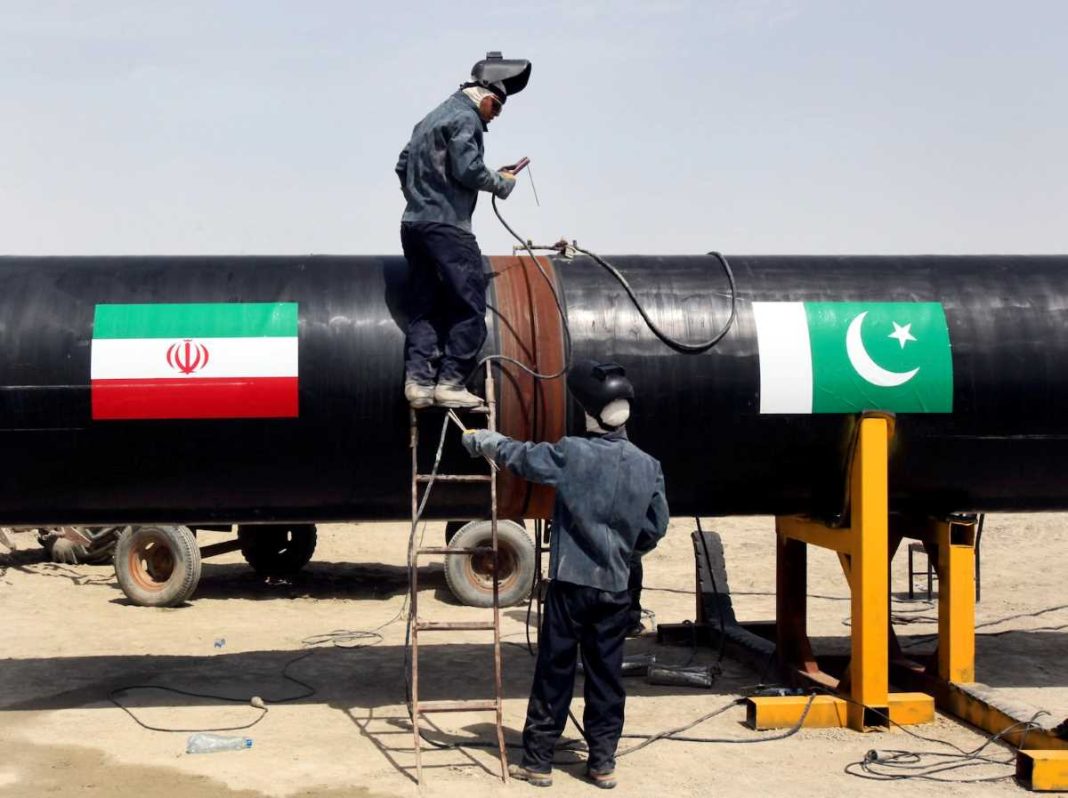“We will continue to enforce our sanctions against Iran. And as a matter of course, we also advise anyone considering business deals with Iran to be aware of the potential ramifications of those deals,” Matthew Miller, the spokesperson for the US Department of State, told reporters in response to a question about Pakistan’s push to complete the pipeline and seek a US sanctions waiver.
“At the same time, helping Pakistan address its energy shortage is a priority for the United States, and we continue to discuss energy security with the Government of Pakistan.”
The Pakistan-Iran gas pipeline, known as the Peace Pipeline, is a long-term project between Tehran and Islamabad, which has faced delays and funding challenges for over two decades. The pipeline would transport natural gas from Iran to neighboring Pakistan.
Pakistan announced in March it would seek a US sanctions waiver for the pipeline, to which the US responded publicly, saying it did not support the project and cautioned about the risk of sanctions in doing business with Tehran.
Widespread media reports this week suggested Iran had slapped Pakistan with a final notice to finish its part of a cross-border gas pipeline or face international arbitration and possibly billions of dollars in fines.
The pipeline deal, signed in 2010, envisaged the supply of 750 million to a billion cubic feet per day of natural gas for 25 years from Iran’s South Pars gas field to Pakistan to meet its rising energy needs. The pipeline was to stretch over 1,900 kilometers (1,180 miles) — 1,150 km within Iran and 781 km within Pakistan.
Tehran says it has already invested $2 billion to construct the pipeline on its side of the border, making it ready to export. Pakistan, however, did not begin construction and shortly after the deal said the project was off the table for the time being, citing international sanctions on Iran as the reason.
In 2014, Pakistan asked for a 10-year extension to build the pipeline, which expires in September this year. Iran can take Pakistan to international court and fine the country. Local media has reported Pakistan can be fined up to $18 billion for not holding up its half of the agreement.
Faced with a potential fine, Pakistan’s government earlier this year gave the go ahead in principle to commence plans to build an 80 km segment of the pipeline. In March, Pakistan announced it would seek the sanctions’ waiver.
Recently, Pakistan’s Foreign Ministry spokesperson announced that Islamabad does not need to consult others on the important projects. Mumtaz Zahra Baloch also stressed that Islamabad is in contact with Tehran.
Iran has the world’s second-largest gas reserves after Russia, according to BP’s Statistical Review of World Energy.
